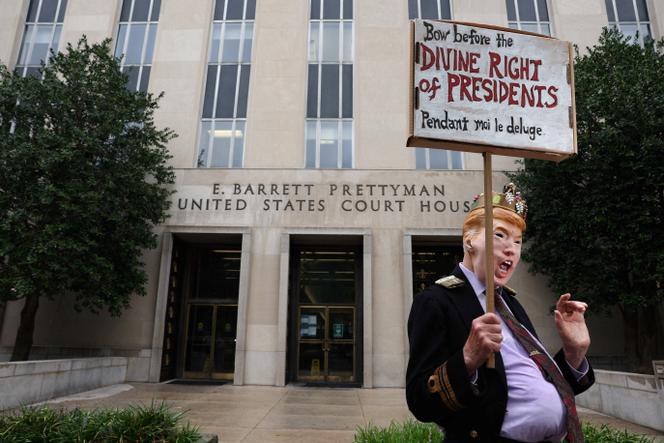


They are the new unintentional protagonists of US politics. Their responsibility is immense and their decisions are profoundly consequential. The judges in charge of the federal and local investigations into Donald Trump, the four-time indicted Republican front-runner in the Republican primaries, have one essential power: control over the timetable. On Monday, August 28, Judge Tanya Chutkan in Washington indicated her desire not to drag things out. She rejected the requests of the former president's lawyers in the investigation into January 6, 2021, and the attempt to interrupt the peaceful transition of power. They had sought to postpone the trial until 2026, well after the presidential election. The special prosecutor, Jack Smith, was aiming for this January. The judge virtually granted his request, setting the trial for March 4, 2024.
The spring of 2024 is shaping up to be a controversial and explosive time in the United States. This date of March 4 is symbolic, considering the inevitable collision between the political and judicial calendars. If confirmed – after the various appeals already promised by Trump's lawyers – the trial would begin the day before Super Tuesday, the pivotal date of the nomination race, with a dozen primaries, from California to Massachusetts to Texas, being held at the same time.
Iowa and New Hampshire will open the official race in mid-January, which is when the second proceeding, brought against Trump by former newspaper columnist E. Jean Carroll, will begin. In May, a jury in New York found that the former president had been responsible for a sexual assault against Carroll in 1996, and had to pay her five million dollars.
Nobody knows how long the trial related to the events of January 6 will last. But as early as March 25, 2024, Trump will be due to appear at another trial, in New York, regarding the payments made to former adult film actress Stormy Daniels, which were concealed in his campaign accounts in 2016. Then, on May 20, 2024, Trump's trial could begin in the case of the classified documents, which he took with him when he left the White House and refused to return in spite of the demands of federal authorities.
This legal calendar still lacks one essential date, namely the trial in Georgia for criminal conspiracy to manipulate the outcome of the presidential election. Prosecutor Fani Willis has proposed a trial date of October 23, seven weeks from now. Trump's lawyers are fighting for a postponement until after the presidential election. The possibility of holding this trial – likely broadcast on television, making it the soap opera of the moment – would be very dangerous for the former president, despite the fact that he has so far managed to exploit his own legal troubles. In the three days following the publication of his mug shot taken on August 24 in Atlanta, Trump managed to raise 7.1 million dollars in donations. His financial needs are considerable, due to the legions of lawyers handling all his ongoing cases.
You have 25.54% of this article left to read. The rest is for subscribers only.
